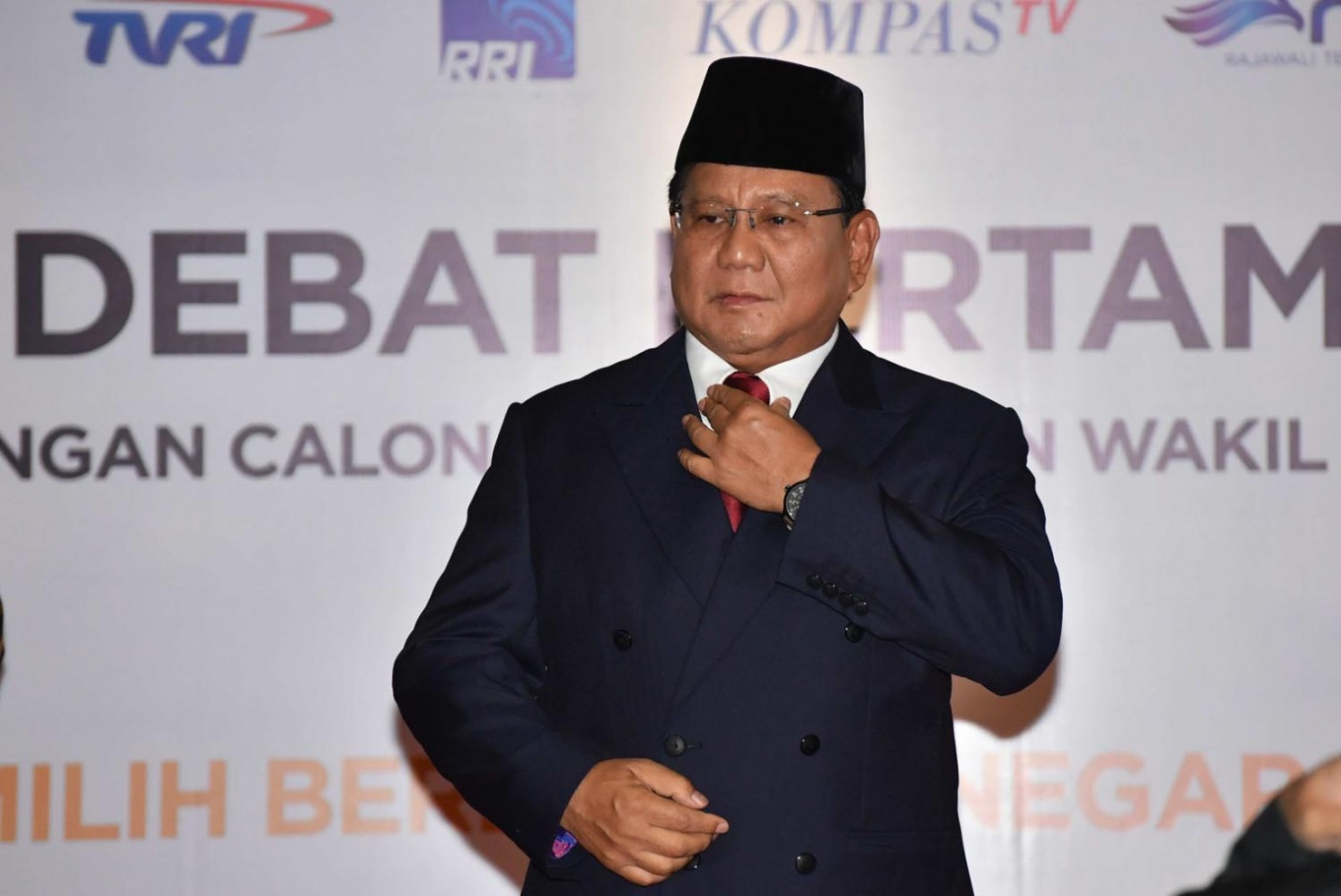News
Prabowo’s meritocratic fantasy
Tenggara Strategics June 12, 2025 Presidential candidate and Gerindra Party chairman Prabowo Subianto. (Antara/Aprillio Akbar)
Presidential candidate and Gerindra Party chairman Prabowo Subianto. (Antara/Aprillio Akbar)
Delivering a speech at the World Government Summit back in February, President Prabowo Subianto proudly claimed his administration’s success in implementing a meritocratic government under his rule. Analysts, however, claim otherwise, as government officials appointed by the President since he took over tend to have notable ties to him without a transparent assessment of their competence.
Tending to the President’s meritocracy claims fails to bear any significant weight when his second-in-command, Vice President Gibran Rakabuming Raka , was chosen as his running mate not for political merit but merely due to his popularity as the son of Prabowo’s predecessor, Joko “Jokowi” Widodo.
Under Jokowi, the Constitutional Court controversially amended election rules, paving the way for Gibran to run as Prabowo’s vice-presidential candidate. That ruling, delivered under a cloud of ethical violations by Anwar Usman, the court’s chief justice, who is also Jokowi’s brother-in-law, marked a turning point in the erosion of Indonesia’s hope of a meritocratic reality.
Since taking over from Jokowi, Prabowo has adopted his predecessor’s clientelist tendencies. His younger brother and business mogul, Hashim Djojohadikusumo, has enjoyed the liberty of becoming the country’s special envoy on climate change and at times the de facto second-in-command, often representing the President in his absence.
Alongside Hashim, Prabowo’s nephews are also active in the country’s politics. In the last few months of his presidency, Jokowi appointed Prabowo’s nephew, Thomas Djiwandono, as the deputy finance minister to facilitate the transition of the administration. President Prabowo has retained Thomas as a deputy to Finance Minister Sri Mulyani Indrawati.
Thomas’ brother, Budi Djiwandono, and Hashim’s daughter, Rahayu Saraswati Djojohadikusumo, secured House of Representatives seats, thanks to their familial ties with Gerindra Party founder and chairman Prabowo.
Rahayu, alongside her brother and former House lawmaker Aryo Djojohadikusumo, are now also involved in the management of the Indonesian Chamber of Commerce and Industry (Kadin), tightening the family’s grip over both the public and private sectors.
The issue of meritocracy has further been exacerbated after an op-ed published by detik.com titled “Jenderal di Jabatan Sipil: Di Mana Merit ASN?” (Generals in Civilian Posts: Where is the Meritocracy in the Civil Service?) was taken down upon request of the author after he claimed to have received threats from unidentified persons.
The retraction of the opinion piece sparked public outcry, as it serves as yet another sign of restrictions on freedom of expression in the country.
The author, a civil servant, critiqued the recent appointment of Lt. Gen. Djaka Budi Utama as the Finance Ministry’s director general of customs and excise. Djaka later resigned from the military. Under the newly revised Military Law, the Finance Ministry falls outside of the civilian posts that active military personnel may hold.
However, critics argued that Djaka’s resignation was merely performative as he had already violated the law by accepting the civilian job prior to his resignation.
Djaka, who has no previous experience in the taxation or customs sector, was part of Prabowo’s infamous Tim Mawar (Rose Team), a group of Army Special Forces soldiers accused of kidnapping pro-democracy activists in 1997-1998.
The 2023 State Civil Apparatus (ASN) Law mandates that civil servant recruitment must be based on fairness, competence, transparency, and freedom from corruption, collusion, and nepotism. These principles are reinforced by Regulation No. 6/2024 from the Administrative and Bureaucratic Reform Ministry, which outlines that all ASN appointments must adhere to meritocratic principles, including competition, objectivity, and integrity.
The foundations for this merit-based system were laid during the presidency of Susilo Bambang Yudhoyono, with the enactment of Law No. 5/2014 on the ASN, which institutionalized the principles of professionalism and open competition in civil service recruitment and promotion.
A major reform is the practice of lelang jabatan (job auction) where leadership positions up for grabs in ministries and government agencies must be publicly announced and filled through open competition among qualified civil servants. This process aims to curb favoritism and patronage, and to professionalize the civil service through merit-based promotion.
Nepotism had long been rampant before Prabowo assumed power, but his preference for direct appointments of close aides as opposed to a democratized selection system will normalize this violation and ensure the country’s commitment to meritocracy remains a fantasy.
What we've heard
A source at the Press Council said that the opinion writer, an employee of the Finance Ministry, experienced two instances of intimidation after his article was published on detik.com. The writer was reportedly cornered and kicked while en route to a location. The perpetrator wore a helmet with a face cover. “This incident caused the writer trauma,” the source said.

